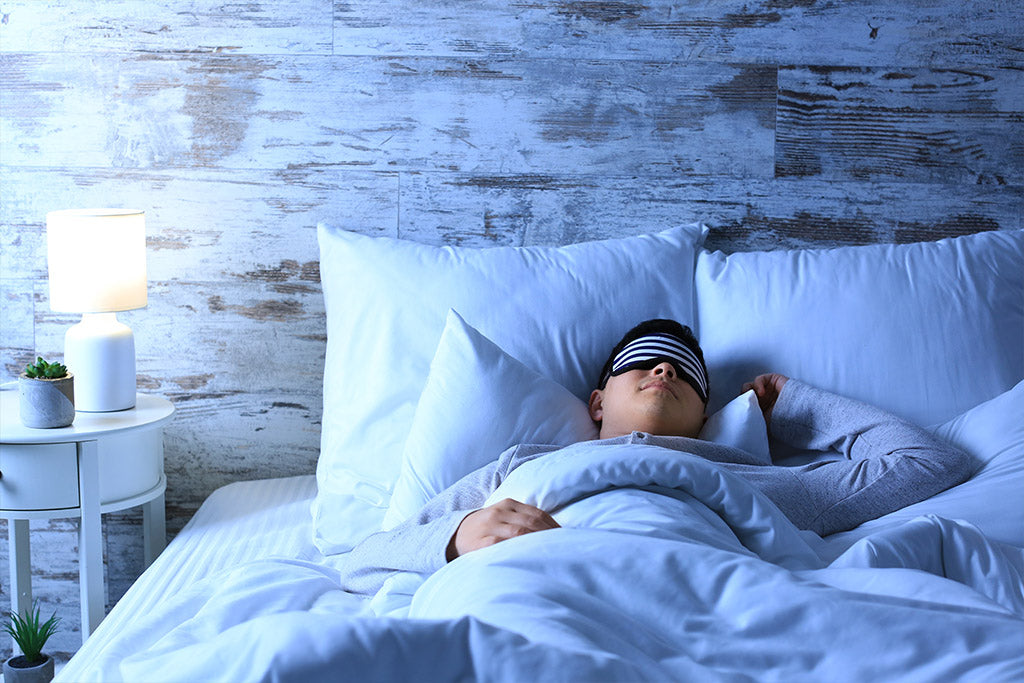Sleep — we all need it, yet for many of us, quality sleep eludes us. Enter melatonin, a hormone naturally produced by our bodies to regulate sleep-wake cycles. But how long does melatonin last in our system? If you're battling with sleep issues, you're likely searching for answers.
This comprehensive guide will shed light on this sleep-promoting hormone and its supplement form, unraveling the sleep mystery we often grapple with.
What is Melatonin?
Melatonin is a hormone that our brains produce in response to darkness. It helps regulate our body's internal clock, signaling that it's time to sleep. It’s our natural sleep aid, with levels rising in the evening and falling in the morning. Melatonin's role in sleep is invaluable — it doesn't induce sleep but prepares our bodies for it, making us feel less alert and more ready to relax and drift off.
What are Melatonin Supplements?

Melatonin supplements are synthetic forms of the melatonin hormone. They’re used to adjust sleep-wake cycles disrupted by things like jet lag, shift work, or insomnia. They come in various forms, including tablets, capsules, gummies, and liquids, and their popularity has soared as a 'natural' remedy for sleep issues. However, it's worth noting that these supplements should be used under the guidance of a healthcare professional, as they can interact with various medications and health conditions.
Check out Puffy mattress reviews from real customers and see how we compare with other brands.
How Much Melatonin Should You Take?
The recommended dosage of melatonin varies depending on individual needs and reasons for use. Generally, a dose between 0.2 mg to 5 mg is considered safe for short-term use. But, it's always best to start with the lowest effective dose to minimize potential side effects, like drowsiness or upset stomach. It’s crucial to consult a healthcare provider for personalized advice before starting any new supplement regimen.
How Long Does It Take For Melatonin To Work?
Melatonin supplements typically start to work within an hour, preparing your body for sleep by making you feel less alert. However, the exact time can vary based on the form of supplement you take and your body's unique response. It’s recommended to take melatonin 30-60 minutes before bedtime to give it time to set in.
How Long Does Melatonin Last?

Melatonin can stay in your body for about 5 hours, based on its half-life. Half-life is the time it takes for the body to eliminate half a dose of a drug. However, the effects on sleep can last longer, as it influences your body's natural sleep-wake cycle.
Best Time to Take Melatonin
The best time to take melatonin is 30 to 60 minutes before you plan to go to sleep. This gives your body enough time to metabolize the supplement and start feeling its effects. But remember, everyone’s body may respond a little differently to melatonin, so it may take a bit of experimenting to find the ideal timing for you.
What is The Half Life of Melatonin?
The half-life of melatonin in the body is approximately 50 minutes to 2 hours. However, this can vary depending on a variety of factors such as your age, metabolism, and overall health. It's important to remember that while the supplement may leave your body relatively quickly, the effects can linger as it influences your natural circadian rhythm.
What Food Has Melatonin?

Melatonin isn't just found in supplements; you can also get it naturally from certain foods. These foods not only contribute to your overall health but can also enhance your body's melatonin production:
- Tart Cherries: These are one of the highest sources of melatonin. You can enjoy them fresh, dried, or as juice.
- Nuts: Certain nuts, especially pistachios and almonds, have considerable melatonin content. They also provide healthy fats, fiber, and antioxidants.
- Grapes: Particularly red and purple varieties, are known to contain melatonin.
- Oranges: Citrus fruits like oranges contain some melatonin. They are also high in vitamin C.
- Tomatoes: This common kitchen staple is another good source of melatonin.
Incorporating these foods into your diet could help boost your body's natural melatonin levels, potentially improving your sleep quality.
How Safe Is Taking Melatonin Every Day?
Melatonin is generally considered safe for short-term use. However, it's not recommended for long-term use without consulting a healthcare provider. Potential side effects can include headache, dizziness, nausea, and drowsiness. Always consult with a healthcare professional before starting any new supplement regimen, especially if you're pregnant, nursing, have a medical condition, or are taking other medications.
Conclusion
Understanding how long melatonin lasts is a stepping stone to decoding better sleep health. Melatonin's role in sleep is significant, and its supplements can aid in adjusting disrupted sleep cycles.
However, it’s essential to take them responsibly, recognizing that they are a tool to assist, not a long-term solution for chronic sleep issues. Always seek professional advice for any sleep concerns to ensure safe and effective use of sleep aids like melatonin.
Try and get to the bottom of your sleepless nights and understand what’s causing it. If you’re frequently waking up with aches and pains, it might be a sign that your bed needs to be replaced. To ensure an uninterrupted night’s sleep, invest in the best mattress possible. Memory foam and a hybrid mattress are both designed to provide pressure relief for an uninterrupted night’s sleep.
Sweet dreams!
Disclaimer. We love sleep and we want you to get the best sleep possible. But we do not provide medical advice. This blog is intended for informational purposes only. It is not a substitute for professional medical info, diagnosis, or treatment. Never ignore professional medical advice in seeking treatment because of something you have read on our blog.

- Award-winning comfort.
- Lifetime warranty.
- 101-night sleep trial.
- Free shipping and returns.
- 100% made in USA.












